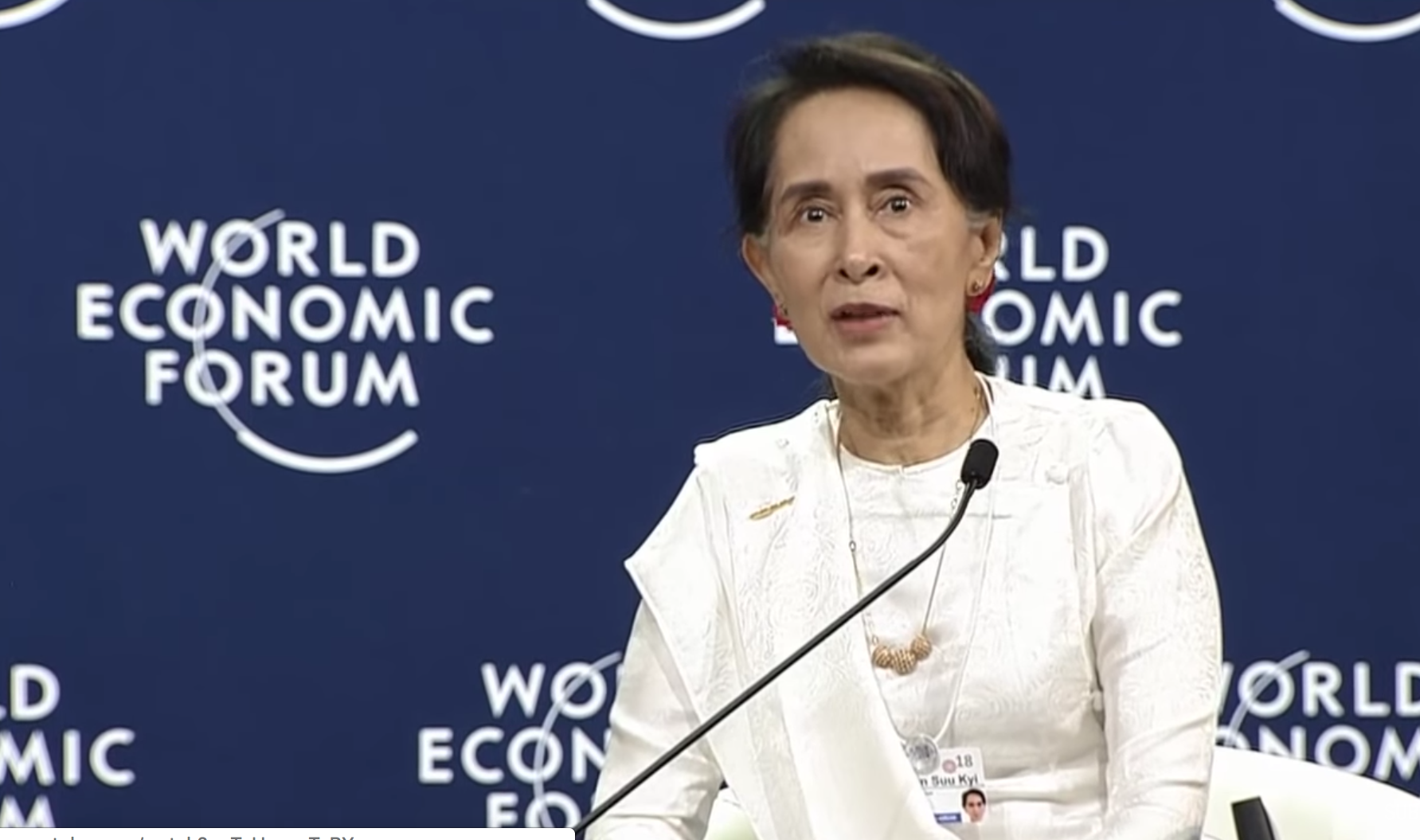Canadian politicians have voted unanimously to strip Myanmar leader and long-time democracy icon Aung San Suu Kyi of her honorary citizenship of their country, reported the BBC.
According to AFP, the move on Thursday (Sep 27) was in response to the Myanmar State Counsellor's "persistent refusal to denounce the Rohingya genocide".
Adam Austen, spokesperson for Foreign Minister Chrystia Freeland, said:
"In 2007, the House of Commons granted Aung San Suu Kyi the status of honorary Canadian citizen.
Today, the House unanimously passed a motion to remove this status."
[related_story]
Joint resolution needed to carry out the action
The honour, granted to foreigners of "exceptional" merit, is symbolic and does not come with any special privileges.
Only five other people have been bestowed with this honour. They include Nelson Mandela, Malala Yousafzai and the Dalai Lama.
The move by the House of Commons lower chamber comes a week after Canada's Parliament approved a motion that recognised the crimes committed against the Rohingya Muslims in Myanmar as genocide, and a day after Canadian Prime Minister Justin Trudeau said the honour given to the 73-year-old could be reconsidered.
However, according to The Guardian, the vote in the lower chamber is but a symbolic one. A joint resolution by both the House and upper Senate chamber is needed to actually remove Suu Kyi's honorary citizenship.
Condemned by the international community
The Myanmar military launched a planned campaign in 2017 that forced at least 725,000 Rohingyas to escape to neighbouring Bangladesh, according to investigators appointed by the United Nations (UN).
Murder, gang rape, arson and other atrocities were reportedly committed.
While the actual number of people who died is unknown, the investigators said an estimated death toll of 10,000 was "conservative".
Suu Kyi had been repeatedly accused by the international community of not calling out the military for the atrocities, much less do anything to stop them.
The UN also condemned Suu Kyi for the genocide that happened in Myanmar while she was in charge, saying she "has not used her de facto position as Head of Government, nor her moral authority, to stem or prevent the unfolding events".
It also said that by not speaking out against them, Suu Kyi was complicit in the crimes the military committed.
Her "fall" from a Western-projected "grace"
Suu Kyi surprised many by remaining silent on the 2015 Rohingya refugee crisis after she became Myanmar's de facto leader in 2016.
The western media seemed quite dismayed when it appeared that the "icon" for human rights was refusing to defend an ethnic minority from her own country.
They eventually came to a realisation that her "fall from grace" was precisely because they were the ones who put her on a pedestal in the first place when she was never really the person they claimed her to be.
But back in December 2013, Suu Kyi had already made that part of herself known to others.
According to The Washington Post, she said then:
"Please don't forget that I started out as the leader of a political party. I cannot think of anything more political than that.
Icon was a depiction that was imposed on me by other people."
Domestic political pressures
So why has Suu Kyi been so quiet on the humanitarian crisis taking place within her country's borders?
Here are some of the reasons given by experts:
Her party does not care for the Rohingya
According to The Washington Post, the majority of the National League for Democracy (NLD) — the party she heads — thinks of the Rohingya in the same way that the Buddhist majority in the country do — that they are "Bengalis", outsiders who do not belong in Myanmar.
While Suu Kyi may not be a bigot herself, it would do her no good politically if she goes against party stances to defend the Rohingya.
Military still holds a great deal of power
Also, despite being the country's de facto leader, Suu Kyi still has to share power with the military.
For instance, according to TIME magazine, the military chief, Min Aung Hlaing, appoints one-quarter of all parliamentary seats, therefore making sure Myanmar's military generals will always have veto powers over any changes to the constitution, which need 75 per cent approval.
Therefore, bound by these political pressures, experts say Suu Kyi has very little room to manoeuvre, especially regarding an issue that even her own party members (and the majority of the people in Myanmar) do not care for.
So, rather than a monster, she might just be more of a political realist after all.
Top image via World Economic Forum/YT
If you like what you read, follow us on Facebook, Instagram, Twitter and Telegram to get the latest updates.
